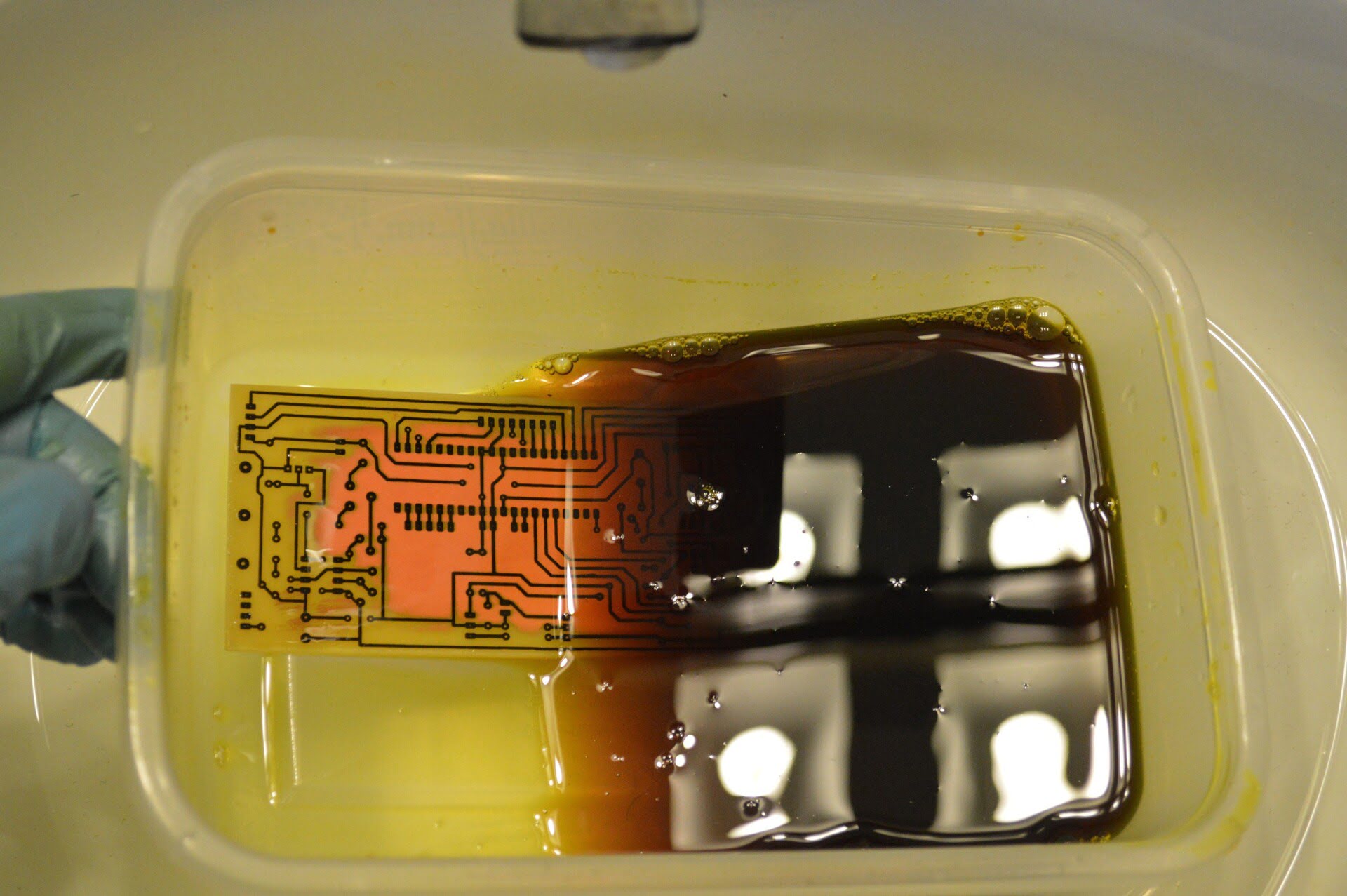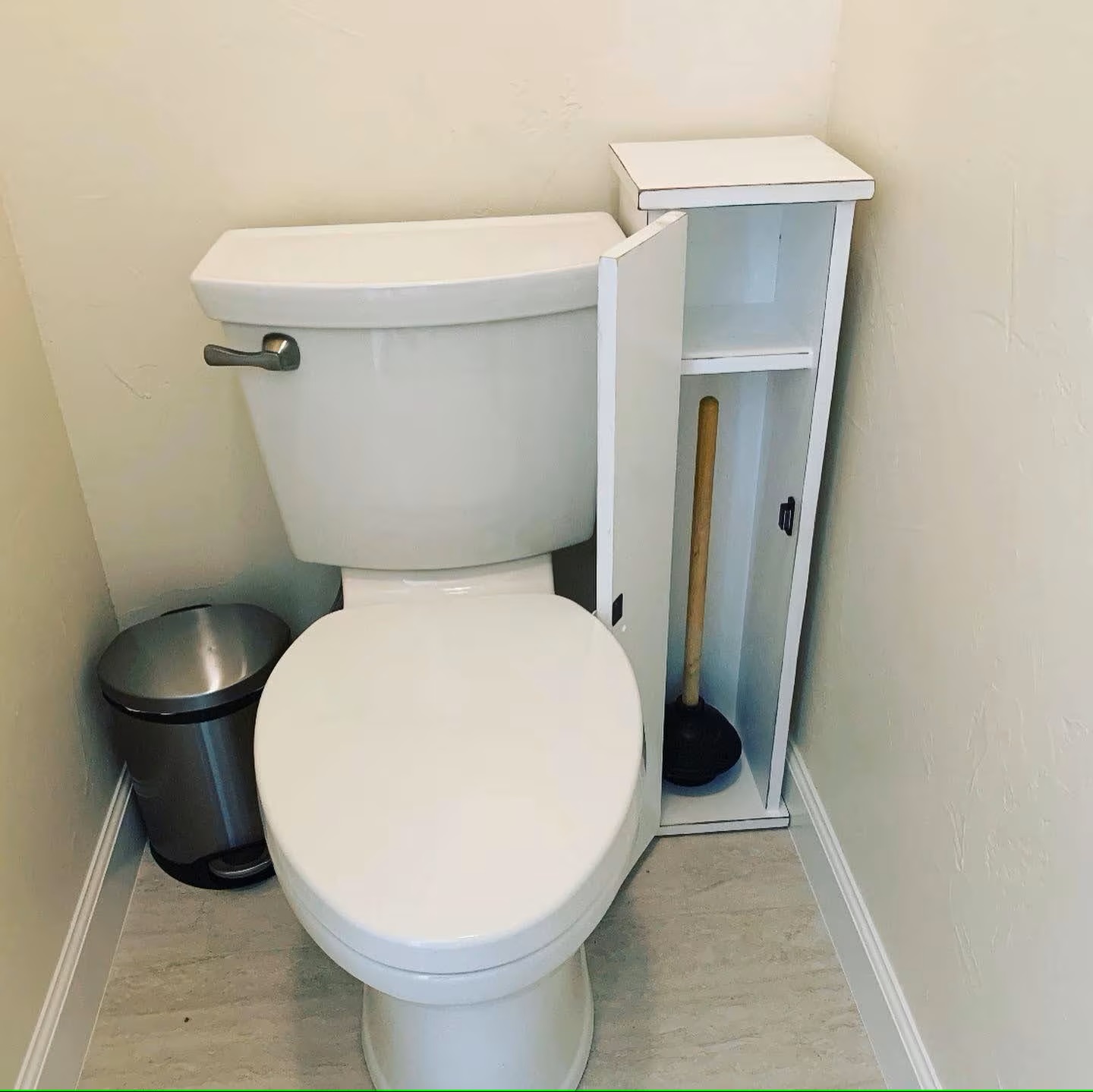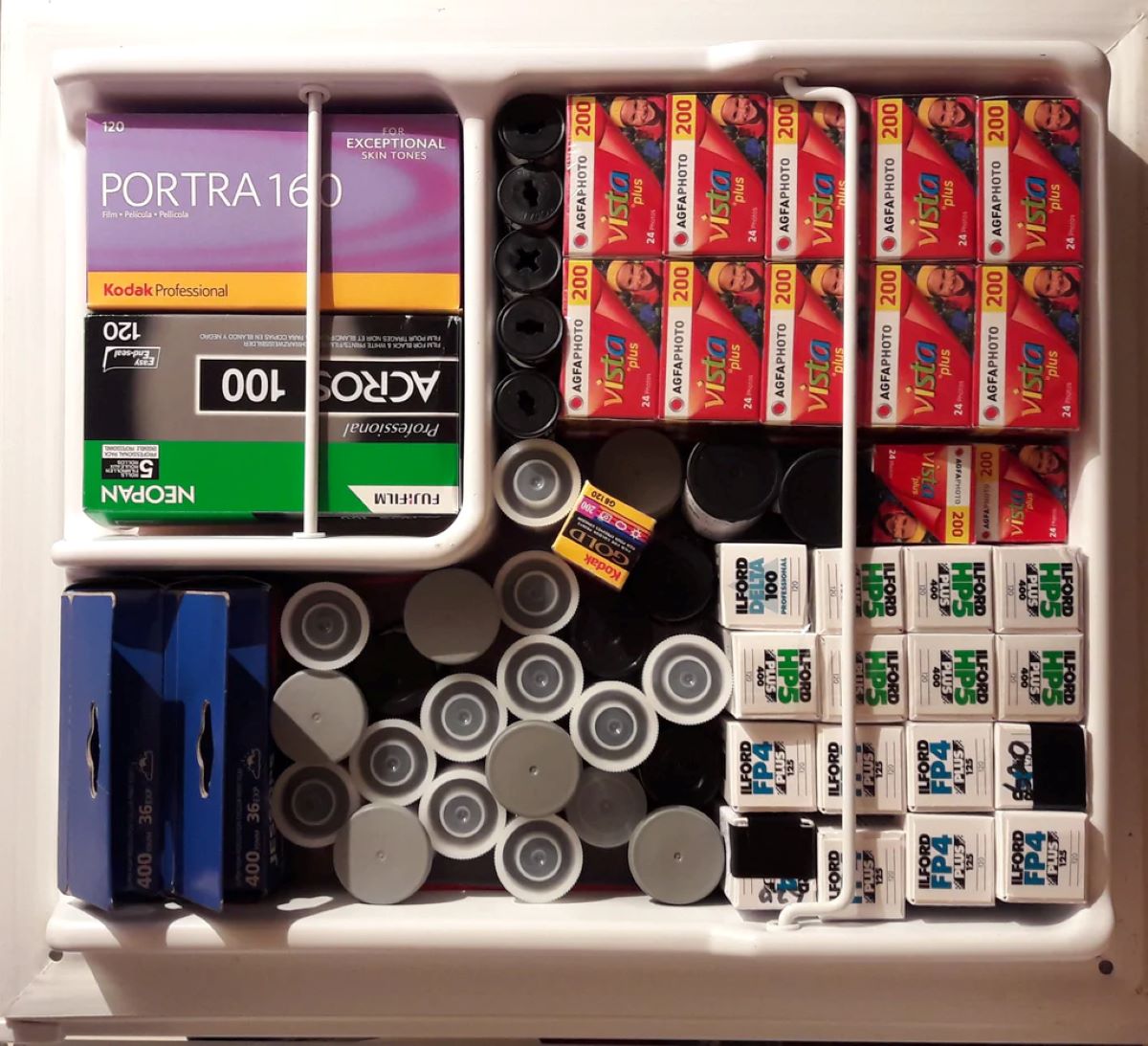

Articles
How To Store Ferrous Chloride
Modified: December 7, 2023
Learn how to properly store ferrous chloride with this informative article. Find out the best methods and precautions to ensure its longevity and safety.
(Many of the links in this article redirect to a specific reviewed product. Your purchase of these products through affiliate links helps to generate commission for Storables.com, at no extra cost. Learn more)
Introduction
Welcome to our comprehensive guide on how to store ferrous chloride. Ferrous chloride, also known as Iron(II) chloride, is a chemical compound that plays an important role in various industries and applications. Proper storage of ferrous chloride is crucial to ensure its stability, prevent contamination, and maintain its effectiveness.
In this article, we will delve into the properties and applications of ferrous chloride, discuss the importance of proper storage, and provide you with practical tips on how to safely store this chemical compound. Whether you are a professional handling ferrous chloride in an industrial setting or a hobbyist using it for personal projects, this guide will help you ensure the longevity and effectiveness of your ferrous chloride supply.
Before we dive into the specifics of storage, let’s first understand what ferrous chloride is and its properties.
Key Takeaways:
- Proper storage of ferrous chloride is crucial to maintain its stability, prevent contamination, and ensure safety. Understanding its properties and applications is essential for safe handling and storage.
- Choosing the right container, considering storage location factors, and implementing best practices are key to safely storing ferrous chloride. Emergency response procedures are vital for addressing spills and accidents.
Read more: How To Store Calcium Chloride
Understanding Ferrous Chloride
Ferrous chloride, also known as Iron(II) chloride, is a chemical compound with the formula FeCl2. It is derived from the element iron and chlorine. Ferrous chloride exists as a greenish to yellowish crystalline solid at room temperature.
One of the key properties of ferrous chloride is its solubility in water. It readily dissolves in water, forming a solution that is acidic in nature. This compound is hygroscopic, meaning it can absorb moisture from the air, so proper storage becomes even more crucial to prevent clumping and degradation.
Ferrous chloride finds its application in various industries. Here are some common applications:
- Water Treatment: Ferrous chloride is often used as a coagulating agent in water treatment processes. It helps in removing impurities, suspended particles, and organic matter from water, making it safer for consumption.
- Wastewater Treatment: In wastewater treatment plants, ferrous chloride is employed in the removal of arsenic and heavy metals from industrial effluents. It can effectively precipitate these contaminants, allowing for safer disposal.
- Dyeing and Textiles: Ferrous chloride is used in the textile industry as a mordant, which helps fix dyes to fabrics. It enhances color fastness and improves dye uptake, resulting in vibrant and long-lasting colors.
- Chemical Synthesis: This compound serves as a precursor in the synthesis of other chemicals, such as iron catalysts, pharmaceuticals, and pigments. It is a vital component in the production of iron oxide pigments used in paints and coatings.
These are just a few examples of the many applications of ferrous chloride. Its versatility and effectiveness make it a valuable chemical compound in various industries. However, to ensure its efficacy and longevity, proper storage is of utmost importance.
Importance of Proper Storage
Proper storage of ferrous chloride is essential to maintain its stability, prevent degradation, and ensure its safety. Here are some reasons why proper storage is crucial:
1. Safety: Ferrous chloride can be hazardous if not handled and stored properly. It is important to prevent accidental exposure or ingestion, as it can cause skin irritation, eye damage, respiratory problems, and even chemical burns. By storing it correctly, you minimize the risk of accidents and protect the health and safety of yourself and others.
2. Preservation of Properties: Ferrous chloride’s effectiveness relies on its chemical properties. Exposure to moisture, air, light, or extreme temperatures can degrade its quality, potency, and stability. Proper storage conditions help preserve its properties, ensuring that it remains effective for its intended applications.
3. Avoiding Contamination: Proper storage minimizes the risk of contamination. Ferrous chloride can react with incompatible substances, such as strong acids or oxidizing agents, leading to the formation of hazardous by-products. By storing it separately and following proper storage protocols, you can prevent accidental mixing and avoid contamination.
4. Regulatory Compliance: There are legal requirements and regulations for the storage and handling of chemicals, including ferrous chloride. Complying with these regulations is essential to avoid fines, penalties, and potential legal consequences. By storing ferrous chloride properly, you demonstrate your commitment to safety and environmental responsibilities.
5. Environmental Protection: Improper storage or disposal of ferrous chloride can have detrimental effects on the environment. The release of this chemical compound into the soil, water bodies, or air can contaminate ecosystems and harm plant and animal life. Proper storage practices help prevent spills, leaks, or releases, minimizing the environmental impact.
It is important to be aware of the risks associated with improper storage of ferrous chloride to understand the gravity of the situation.
Risks of Improper Storage: Improper storage of ferrous chloride can lead to various risks, including:
- Chemical reactions: Ferrous chloride can react with incompatible substances, leading to the release of toxic gases, fire, or explosions.
- Corrosion: If stored in containers that are not compatible with ferrous chloride, corrosion can occur, potentially leading to container failure and release of the chemical.
- Contamination: Improperly stored ferrous chloride can come into contact with other substances, causing contamination and rendering it unfit for use.
- Health hazards: Mishandling or improper storage can result in accidental exposure, leading to harmful health effects on humans and animals.
Proper understanding and compliance with legal and environmental considerations are essential when storing ferrous chloride.
Legal and Environmental Considerations: When storing ferrous chloride, it is crucial to abide by applicable laws and regulations, such as local, state, and federal requirements. These regulations often govern the storage, labeling, documentation, and disposal of hazardous substances. Additionally, understanding and implementing proper waste management practices help mitigate the environmental impact and ensure compliance with environmental regulations.
By recognizing the importance of proper storage and understanding the risks associated with improper storage, you can take the necessary precautions to store ferrous chloride safely and responsibly.
Choosing the Right Container
Choosing the right container is crucial for the proper storage of ferrous chloride. The container should be selected based on the material, size and shape, and sealability and durability. Let’s explore these factors in detail:
Material of the Container: The container material should be chemically resistant to ferrous chloride to prevent reactions or corrosion. Common options include high-density polyethylene (HDPE), polypropylene, or glass. Avoid using containers made of materials such as aluminum or certain types of plastics that may react with the chemical compound.
Size and Shape of the Container: The size of the container should be appropriate for the quantity of ferrous chloride you need to store. It should provide enough space to accommodate the chemical without being overly spacious, which can lead to unnecessary air exposure. The shape of the container should allow for easy pouring and handling. Consider using containers with wide openings to facilitate efficient transfer and minimize the risk of spills.
Sealability and Durability: The container should have a tight and secure seal to prevent any leakage or evaporation of ferrous chloride. Look for containers with screw-top lids or secure closures. Additionally, ensure the container is durable enough to withstand potential impacts or accidental drops, reducing the risk of breakage. This will help maintain the integrity of both the container and the chemical compound.
It is important to note that once a container has been used to store ferrous chloride, it may become contaminated and should not be reused for any other purpose. Always follow proper disposal guidelines for used containers to minimize the risk of cross-contamination or the release of hazardous substances.
By carefully considering the material, size and shape, and sealability and durability of the container, you can ensure the effective and safe storage of ferrous chloride.
Factors to Consider for Storage Location
Choosing the right storage location for your ferrous chloride is vital to maintain its stability and ensure its effectiveness. When determining the storage location, consider the following factors:
Temperature and Humidity: Ferrous chloride is sensitive to temperature and humidity fluctuations. It is important to store it in a cool and dry environment to prevent degradation and clumping. Avoid exposing it to extreme temperatures or high humidity levels, as this can impact its chemical properties. A temperature range between 15°C and 25°C (59°F and 77°F) with a humidity level below 60% is generally recommended, but check the specific storage requirements provided by the manufacturer.
Light Exposure: Ferrous chloride should be stored in a location away from direct sunlight or strong artificial light sources. Light exposure can accelerate the degradation process and reduce the chemical’s effectiveness. Choose a dark or low-light storage area, such as a cabinet or a designated section in a storage room, to protect the ferrous chloride from light exposure.
Ventilation and Airflow: Adequate ventilation and airflow are essential to prevent the buildup of potentially harmful gas or fumes. Choose a well-ventilated area to minimize the risk of chemical vapors accumulating. Good airflow helps disperse any potential gas emissions and maintains consistent air quality in the storage space. Ensure there is sufficient space between containers to allow for proper airflow and avoid congestion.
By considering these factors when selecting the storage location for your ferrous chloride, you can create an environment that promotes stability and maintains the chemical’s efficacy for its intended applications.
Store ferrous chloride in a tightly sealed container away from moisture and incompatible substances. Keep it in a cool, dry place and away from direct sunlight to prevent degradation.
Read more: How To Store Store-Bought Bread
Safe Handling and Transportation
Proper handling and transportation of ferrous chloride are crucial to prevent accidents, contamination, and ensure the safety of individuals involved. Here are some important considerations:
Handling Precautions: When handling ferrous chloride, it is essential to follow proper safety protocols. Wear appropriate personal protective equipment (PPE) such as gloves, goggles, and lab coats to protect against direct contact with the chemical compound. Avoid inhaling the fumes by working in a well-ventilated area or using respiratory protection if necessary. Always handle ferrous chloride with caution and adhere to the safety guidelines provided by the manufacturer.
Avoiding Contamination: Ferrous chloride should be stored separately from incompatible substances. Avoid mixing it with strong acids, oxidizers, or other chemicals that may react with or contaminate the compound. Label containers clearly to distinguish them from other chemicals and to ensure proper identification. Clean any spills immediately using appropriate absorbent materials and dispose of them following proper waste management protocols.
Secure Transportation Methods: If you need to transport ferrous chloride, it is important to do so securely to prevent leaks, spills, or accidents. Use containers specifically designed for transportation, ensuring they are tightly sealed and properly labeled. Avoid placing the container in direct sunlight or extreme temperature conditions during transportation. Transport the chemical compound separately from other materials to prevent potential interaction or contamination.
Proper training of personnel involved in the handling and transportation of ferrous chloride is important to ensure they are aware of the potential risks and the necessary precautions to take. By following the appropriate handling procedures and utilizing secure transportation methods, you can mitigate the risks associated with ferrous chloride.
Best Practices for Storage
Implementing best practices for the storage of ferrous chloride is essential to maintain its integrity, minimize risks, and ensure a safe working environment. Here are some key practices to follow:
Labeling and Documentation: Properly label all containers of ferrous chloride with clear and accurate information. Include the chemical’s name, concentration, hazard symbols, handling instructions, and any other relevant details. Maintain comprehensive documentation of the chemical inventory, including storage location, date of receipt, and expiration dates. This helps ensure proper identification, traceability, and easy retrieval of the chemical when needed.
Storage Area Organization: Organize the storage area for ferrous chloride in a logical and systematic manner. Group similar chemicals together and segregate them from incompatible substances. Use suitable shelving, racks, or cabinets to store the containers safely. Keep walkways clear and uncluttered to facilitate easy access and minimize the risk of accidents. Implement a first-in, first-out (FIFO) system to ensure older stock is used before newer stock to minimize waste and maintain freshness.
Regular Inspection and Maintenance: Conduct regular inspections of the storage area and containers to identify any signs of damage, leaks, or deterioration. Inspect for proper sealing of containers and ensure lids are tightly closed to prevent any evaporation or leakage. Check for any indicators of moisture or temperature fluctuations that may compromise the quality and effectiveness of the chemical. Promptly address any issues identified during inspections to maintain a safe storage environment.
By following these best practices, you can ensure proper storage and handling of ferrous chloride, minimizing risks, and maintaining the quality of the compound for its intended use.
Emergency Response Procedures
Having effective emergency response procedures in place is crucial to address any spills, leaks, or accidents involving ferrous chloride. Proper planning and understanding of the necessary steps can mitigate risks and minimize the impact of such incidents. Here are some key considerations:
Dealing with Spills or Leaks: In the event of a spill or leak of ferrous chloride, it is important to act quickly and appropriately to prevent further spread or contamination. Follow these steps:
- Secure the area: Restrict access to the affected area and ensure the safety of personnel. Use appropriate containment measures, such as absorbent materials, to prevent the spill from spreading.
- Wear proper PPE: Put on appropriate protective gear, including gloves, goggles, and a lab coat, before attempting to contain or clean up the spill.
- Contain and clean: Carefully clean up the spill using suitable absorbent materials, avoiding direct contact with the chemical. Transfer the waste into appropriate containers for disposal.
- Dispose of waste: Follow proper hazardous waste disposal guidelines in accordance with local regulations. Label and document the disposal process accordingly.
Emergency Contacts: Maintain a list of emergency contacts, including local emergency response services and relevant environmental agencies. Display this information prominently in the storage area and ensure all personnel are aware of who to contact in case of an emergency. Report any incidents promptly and provide all necessary information to the authorities.
Hazardous Waste Disposal: Ferrous chloride is classified as a hazardous substance, and its disposal should be done following local regulations. Familiarize yourself with the specific guidelines for disposing of ferrous chloride and any associated waste. Utilize appropriate waste disposal methods, such as working with certified waste management companies or facilities, to ensure the safe and proper disposal of the chemical and any contaminated materials.
Remember, prevention is key. By implementing proper storage, handling, and transportation practices, you can minimize the likelihood of accidents or spills. However, having well-defined emergency response procedures and being prepared for such incidents is crucial to protect yourself, others, and the environment.
Conclusion
Proper storage of ferrous chloride is essential to maintain its stability, effectiveness, and safety. By following the guidelines and best practices outlined in this article, you can ensure that your ferrous chloride supply remains in optimal condition for its intended applications.
Understanding the properties and applications of ferrous chloride enables you to appreciate its importance in various industries, such as water treatment, wastewater treatment, dyeing, textiles, and chemical synthesis. However, it is crucial to handle this chemical compound with care and store it in a suitable manner to prevent accidents, contamination, and degradation.
The factors to consider for storage location, including temperature and humidity, light exposure, ventilation, and airflow, are critical in maintaining the quality of ferrous chloride. By choosing the right container, such as one made of chemically resistant materials, the appropriate size and shape, and with good sealability and durability, you can safeguard against leaks and ensure the longevity of the chemical compound.
Additionally, implementing best practices for storage, such as proper labeling and documentation, organized storage area, and regular inspection and maintenance, helps create a safe and efficient storage environment. By having emergency response procedures in place, you are prepared to handle spills or leaks, contacting the necessary authorities and disposing of hazardous waste responsibly.
In conclusion, storing ferrous chloride correctly is crucial for its continued effectiveness and the safety of individuals and the environment. By adhering to best practices and following proper storage guidelines, you can maximize the benefits of ferrous chloride while minimizing risks and ensuring compliance with legal and environmental considerations.
Frequently Asked Questions about How To Store Ferrous Chloride
Was this page helpful?
At Storables.com, we guarantee accurate and reliable information. Our content, validated by Expert Board Contributors, is crafted following stringent Editorial Policies. We're committed to providing you with well-researched, expert-backed insights for all your informational needs.















0 thoughts on “How To Store Ferrous Chloride”